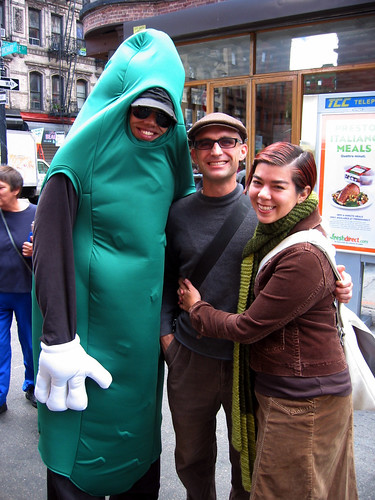
Okay. I'll bite. To those of you who reached this site by searching for "desk accessory for bartleby the scrivener" (11 of you this month), "bartleby the scrivener desk accessory" (5), "bartleby scrivener desk accessory" (2), "bartleby the scrivener, a desk accessory" (1): what was it you were looking for?
I apologize if this query, which is sure to draw even more of you searchers to this site fruitlessly, is somewhat of a violation of the unwritten rules of the Internet, but you've really piqued my curiousit. I've now done a fair amount of searching myself trying to figure it out, but I've gotten nowhere, so I'm left helplessly trying to imagine what Bartleby might have needed on his desk.

